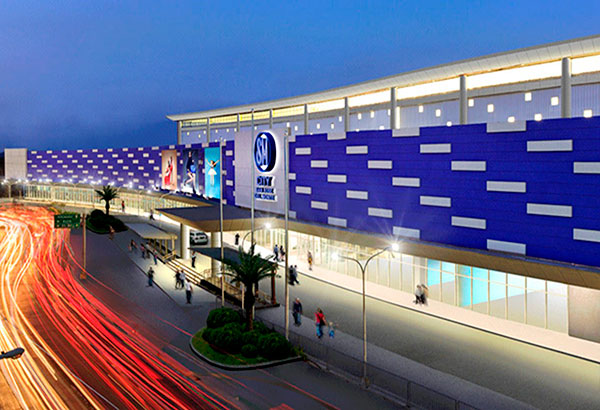More SM malls get solar power

This month, SM Supermalls completed solar panel projects in three malls —SM City Cauayan, SM City Cabanatuan and SM City Iloilo. File
MANILA, Philippines - Retail giant SM Supermalls continues its partnership with Solar Philippines as it puts up more solar rooftops in its malls to end 2017 with 8.9 megawatts (MW) total capacity.
This month, SM Supermalls completed solar panel projects in three malls —SM City Cauayan, SM City Cabanatuan and SM City Iloilo.
It will launch five more solar-powered malls — SM City Trece Martires, SM Seaside City Cebu, SM City Dasmarinas, SM City Olongapo and the upcoming SM City Tuguegarao Downtown—this year.
The mall operator said it will have approximately 33,000 solar panels capable of producing 8.9 MW of electricity by the end of this phase.
This is enough to fully charge around 1.3 million cellphones, light up 890,000 10-watt LED lamps, run 297,000 30-watt electric fans, or provide power to almost 6,000 households.
The rooftop format not only utilizes previously unused space, but also provides “green” roofs for the malls.
The retail giant aims to lead the private sector in clean energy use in the country with Solar Philippines, which is now the largest developer of solar rooftop power plants in Southeast Asia.
“As SM Supermalls aspires to be exemplary for commercial and industrial establishments, this latest milestone on green energy projects reaffirms SM Prime’s commitment to its role as a catalyst for economic growth, delivering innovative and sustainable lifestyle cities that enrich the quality of life of millions,” the company said.
The retail giant first launched its first solar rooftop project in 2014 at SM City North Edsa, the first solar-powered mall in the Philippines.
“SM Prime has always been committed to reduce greenhouse emissions and maximize energy efficiency in our malls. This is just one of the many renewable projects we have been doing and we will continue with finding ways on how to make our operations more environmentally sound and sustainable,” SM Prime Holdings executive committee chairman Hans Sy said.
SM Mall of Asia followed two years later with the inauguration of a solar-powered facility twice the capacity of the former’s rooftop installation.
- Latest
- Trending






























